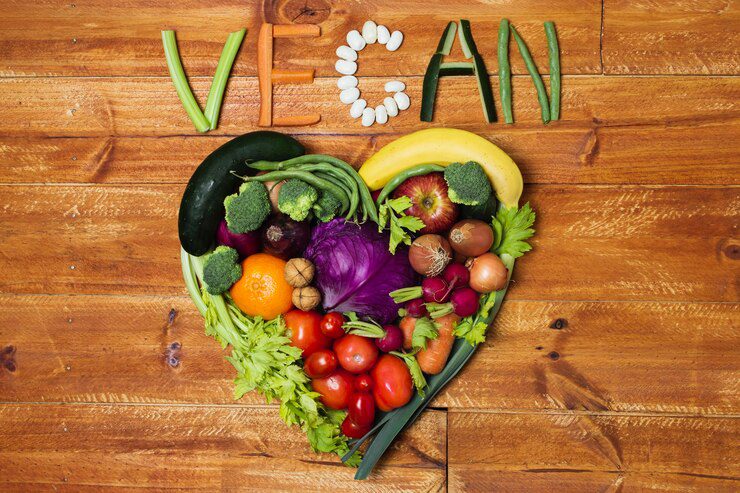In the realm of fitness, adopting a vegan lifestyle transcends dietary choices; it becomes a holistic approach to nourishing the body, supporting athletic performance, and contributing to overall well-being. This exploration delves into the principles of vegan fitness, elucidating the symbiotic relationship between plant-powered nutrition and physical vitality.
Fueling Workouts with Plant-Based Nutrition
Contrary to the misconception that a plant-based diet lacks sufficient protein, vegan fitness emphasizes a diverse and nutrient-rich approach to fueling workouts. Legumes, tofu, tempeh, and plant-based protein supplements offer ample protein for muscle repair and growth. The inclusion of whole grains, fruits, and vegetables provides essential carbohydrates, vitamins, and minerals, ensuring sustained energy for optimal athletic performance.
Harnessing the Power of Plant Proteins
Plant proteins, abundant in amino acids, are fundamental in supporting muscle development. Sources like quinoa, lentils, and hemp seeds offer complete protein profiles, aiding in the repair of muscle tissues stressed during workouts. Vegan athletes strategically combine various plant protein sources to ensure they meet their protein requirements and promote muscle recovery.
Nutrient-Rich Whole Foods for Recovery
Post-workout recovery is paramount in vegan fitness, and nutrient-dense whole foods play a pivotal role. Incorporating foods rich in antioxidants, such as berries and leafy greens, helps combat oxidative stress induced by exercise. Nuts and seeds provide essential fats, aiding in inflammation reduction and supporting joint health, crucial for sustained physical activity.
Vegan Supplementation for Optimal Performance
While a well-planned vegan diet with vegan protein sources can provide most nutrients, supplementation can be beneficial for certain vitamins like B12, iron, and omega-3 fatty acids. Vegan fitness enthusiasts often incorporate algae-based omega-3 supplements and fortified foods to ensure they meet their nutritional needs, contributing to enhanced endurance and overall performance.
Balancing Macronutrients for Athletic Excellence
Achieving a balance of macronutrients is foundational in vegan fitness. Carbohydrates fuel workouts, proteins support muscle function, and fats contribute to overall energy and hormonal balance. Vegan athletes strategically structure their meals to include a harmonious mix of these macronutrients, optimizing their body’s potential for endurance, strength, and agility.
Hydration – A Cornerstone of Vegan Fitness
Proper hydration is a non-negotiable aspect of vegan fitness. Water supports digestion, nutrient absorption, and temperature regulation during workouts. Vegan athletes prioritize staying well-hydrated, recognizing the direct impact of hydration on endurance, recovery, and overall athletic performance.
Flexibility in Vegan Meal Planning
Vegan fitness thrives on flexibility in meal planning, encouraging a diverse and colorful array of plant-based foods. The adaptability of vegan diets allows individuals to explore various cuisines, experiment with seasonal produce, and discover creative ways to meet their nutritional goals, promoting sustained interest and commitment to the lifestyle.
Mindful Eating Practices for Enhanced Performance
Mindful eating is integral to vegan fitness, emphasizing the connection between the mind and body. Paying attention to hunger cues, savoring each bite, and cultivating gratitude for the nourishment provided by plant-based foods contribute to a positive relationship with food. This mindfulness enhances overall well-being and fosters a holistic approach to fitness.
Vegan Fitness Communities – Fostering Support and Knowledge
Engaging with vegan fitness communities provides a valuable support system and a wealth of knowledge. Sharing experiences, recipes, and workout routines within these communities fosters camaraderie and encourages individuals to explore new avenues in their fitness journey. Vegan athletes find inspiration and motivation through the collective wisdom of like-minded individuals.
The Environmental Impact of Vegan Fitness
Beyond personal health benefits, vegan fitness aligns with environmentally conscious choices. Plant-based diets generally have a lower carbon footprint, reducing the environmental impact associated with animal agriculture. Vegan fitness enthusiasts often find motivation in knowing that their lifestyle choices contribute to both personal well-being and the health of the planet.
Conclusion
Vegan fitness is more than a dietary preference; it’s a lifestyle that harmonizes plant-powered nutrition with physical vitality. By prioritizing nutrient-rich foods, embracing a balanced approach to macronutrients, and fostering mindfulness in eating practices, individuals can thrive in the intersection of veganism and fitness. As the world increasingly recognizes the importance of sustainable and health-conscious choices, vegan fitness stands as a testament to the transformative power of plant-based living in the pursuit of holistic well-being.







